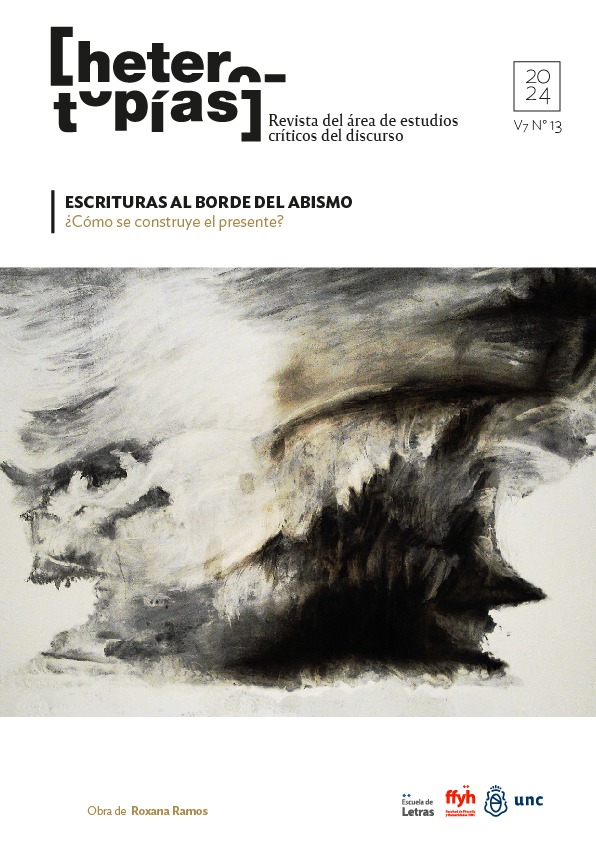When memory talks a trick. About Confesión by Martín Kohan
Main Article Content
Abstract
We approach “Confesión” by Martín Kohan (2020). Three stories build the plot of this novel to come together in a single one. We are interested in analyzing not only the significance that the title in the singular anticipates, but also the confessions that are delineated in the novel through different nuances (Barthes, 2004). We understand that confession can be thought of as a technology (Foucault, 1991), a technique that produces truth as an effect, as well as an enunciative mechanism of truth. In the novel, several figures of confession are configured: that of the erotic-sexual "sin" more fantasized than consummated by an adolescent girl; that of a desperate mother who seeks help from a soldier, betraying her own son in her desire to save him; that of a grandmother who, by telling a story, confesses the story of her father to her grandson in the family sphere. However, this is not the story of a search for truth. Truth as symptom emerges where the subject can no longer remain silent. From these approaches we ask ourselves about the "confession" in the stories narrated: what are these confessions?, how to read them?, from which figures and nuances are they constructed?, what are the effects they produce?
Downloads
Article Details

This work is licensed under a Creative Commons Attribution-NonCommercial-ShareAlike 4.0 International License.
Those authors who have publications with this journal, accept the following terms: Those authors who have publications with this journal, accept the following terms:
a. The authors will keep their copyright and guarantee to the journal the right of first publication of their work, which will be simultaneously subject to the Creative Commons Attribution - Non-Commercial - Share Alike (by-nc-sa) Attribution License; no commercial use of the original work or any derivative works is allowed, the distribution of which must be done with a license equal to the one that regulates the original work.
b. Authors may adopt other non-exclusive license agreements for the distribution of the published version of the work (e.g., deposit it in an institutional telematic archive or publish it in a monographic volume) provided that the initial publication in this journal is indicated.
c. Authors are allowed and recommended to disseminate their work through the Internet (e.g. in institutional telematic archives or on their website) before and during the submission process, which may lead to interesting exchanges and increase the number of citations of the published work. (See The effect of open access).
How to Cite
References
Arfuch, L. (2002). El espacio biográfico. Dilemas de la subjetividad contemporánea. Buenos Aires: Fondo de Cultura Económica.
Barthes, R. (2004) Lo Neutro. Buenos Aires: Siglo XXI.
Borges, J.L. (1994). Fundación mítica de Buenos Aires. En Obras completas 1923-1972. Buenas Aires: Emecé.
Foucault, M. (1991). Tecnologías del yo. Barcelona: Paidós.
Foucault, M. (1990). Historia de la sexualidad. La voluntad de saber. Buenos Aires: Siglo XXI.
Foucault, M. (2014). Obrar mal, decir la verdad. La función de la confesión en la justicia. Buenos Aires: Siglo XXI.
Kohan, M. (2020) Confesión. Buenos Aires: Anagrama.
Rotger, P. (2013) Memoria sin tiempo. Prácticas narrativas de la memoria en escritoras argentinas de la posdictadura. Córdoba: Editorial Comunicarte.
Simón, G. (2021). Literatura y Semiótica, espacios de matices. En Simón, G. (coord.) Entre matices. Notas sobre literatura argentina y latinoamericana contemporáneas (pp.7-17). San Juan: Editorial UNSJ.
